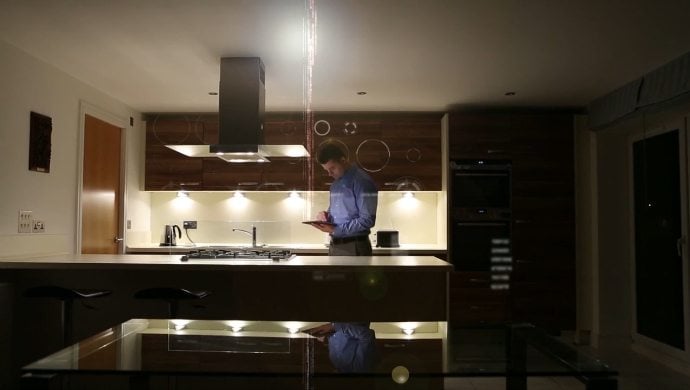Temasek-backed pureLiFi has partnered with the IMDA to pursue trial testing in the city — the first partnership of its kind in the world

pureLiFi, and Edinburgh-based company developing the cutting edge internet technology called LiFi, revealed this week it is working closely with Singapore’s Info-communications Development Media Authority (IMDA) to eventually trial its product in the city.
LiFi is a futuristic internet technology that, if it can be commercialised, is said to be able to increase internet speed by a factor of 100 and could fundamentally change the IoT landscape moving forward.
The engineering behind LiFi, which stands for ‘Light Fidelity’ is fairly complicated, but much like another cutting technology — hyperloop — it has moved from the realm of science fiction to relative feasibility.
In its most basic definition, LiFi leverages the ability of LED lights to modulate thousands of light signals simultaneously. In a process called demodulation, LiFi would extract an information-bearing signal from the LED’s carrier waves. It then converts the information to binary data which can be transformed into internet.
While the speed is a nice perk, the truly game-changing aspect of LiFi would be the ability to transform practically every source of light into an internet hotspot.
The most interesting example of a use case would be smart (and driverless) vehicles. The LED headlights and tail lights could become LiFi-enabled, allowing moving vehicles to quickly and efficiently communicate with one another.
Because the technology leverages light waves, one major restriction for LiFi is it cannot travel through walls. So, within a home or office space, each room would need a LiFi enabled LED light to cover the entire space.
A leader in developing the theory, Herald Hass, explains it nicely in this TED talk from 2011.
Also Read: OTR: Stop burying the problems with Li-Fi to save the headline
Singapore’s Minister for Communications and Information, Dr. Yaacob Ibrahim, has been leading the drive to implement LiFi in Singapore. On November 10, he publically announced Singapore would be open for trials and the government would loosen regulations on the technology.
Furthermore, Singapore’s sovereign wealth fund Temasek was the lead investor in a Series B round for pureLiFi. Specifics of the round were not disclosed, but so far, the company has raised US$10 million in total funding to date.
This move by Singapore is the first time in the world a government has explicitly backed the development of the technology — both in terms of regulatory and financial support.
“The vision to offer their country state-of-the-art wireless communications systems is reinforced by their action to quickly enable strong industry partnerships and an environment conducive to future commercial exploitation. We certainly hope other countries and regions will follow suit in embracing LiFi technology and its transformative potential,” said pureLiFi COO Harald Burchardt on the decision.
Also Read: Singaporean medtech company is trying to disrupt dialysis, lands US$11.2M funding
Besides the desire to innovate and stay on top of technology, LiFi could help ease an oncoming bandwidth crunch. pureLiFi is predicting that as more and more people can afford to jump online — currently the rate of internet adoption increases by 50 per cent annually — societies will need to find alternatives to support a growing user base that demands increasingly fast internet speeds.
pureLiFi was incorporated in 2012 in Edinburgh, Scotland and in 2016 released the world’s first LiFi dongle.
—
The post Singapore has quietly taken the global lead in LiFi technology development appeared first on e27.